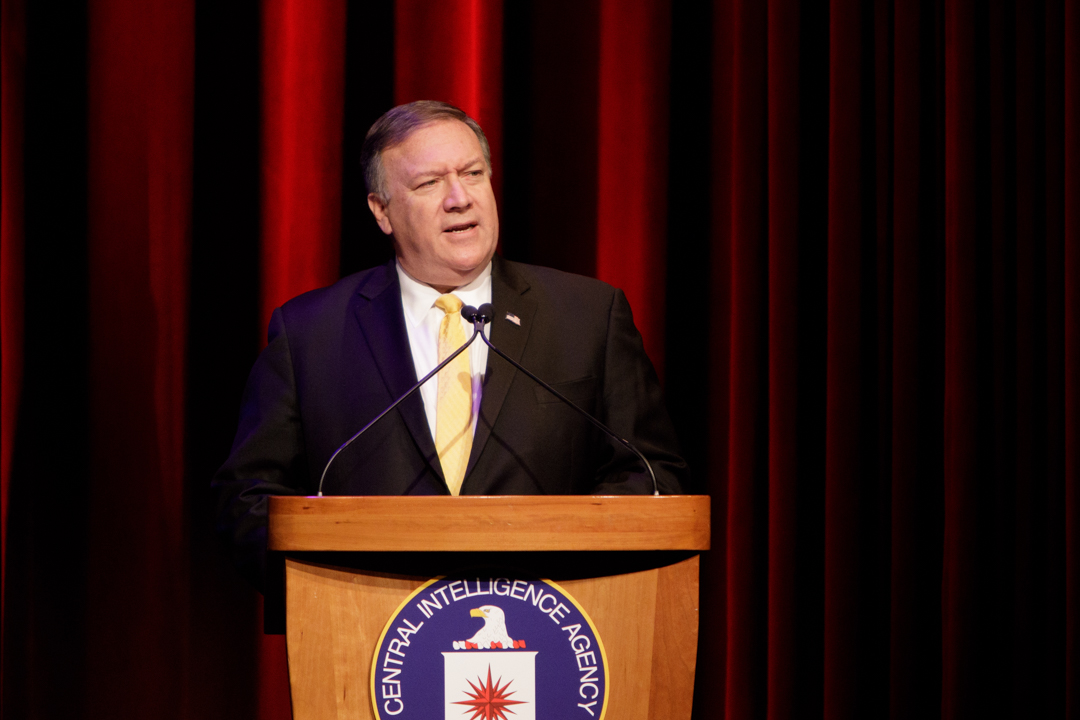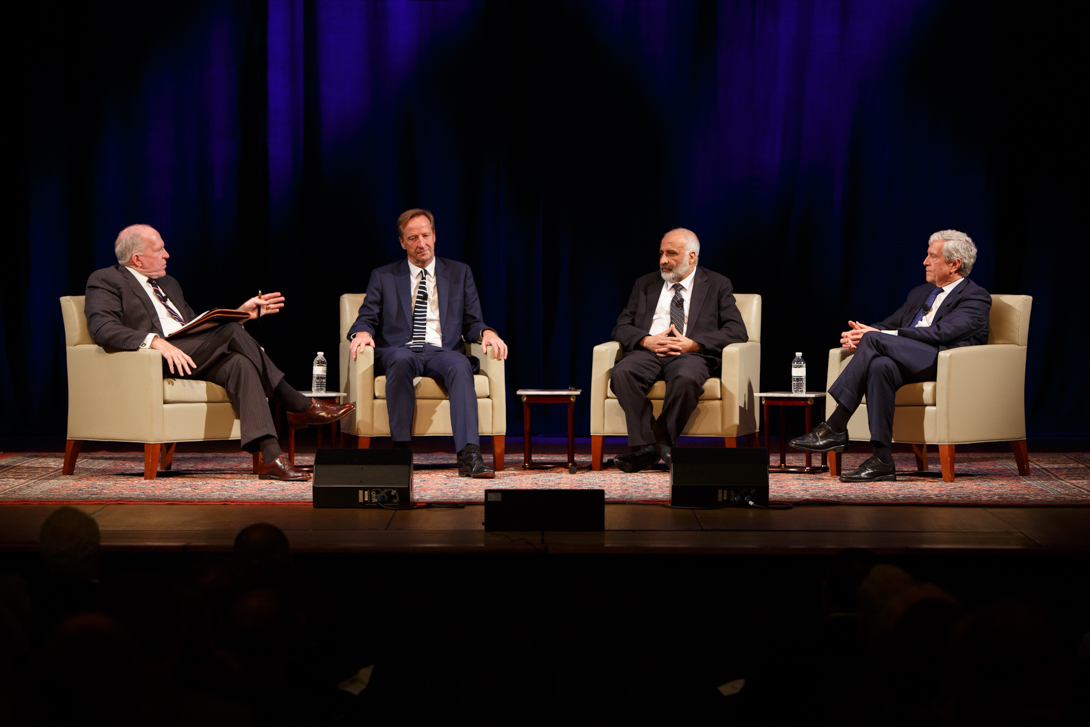By Kristen Mitchell
CIA Director Mike Pompeo said that in a world where America’s enemies move quickly, it’s critical that the Central Intelligence Agency can react to evolving intelligence without unnecessary red tape.
“Many of our adversaries today are incredibly nimble, and they’re viciously fast when deciding how they’re going to attack America. That poses immense challenges for institutions charged with helping our government defeat them,” Mr. Pompeo said. “The size and complexity of our government, along with the need to coordinate efforts across organizational lines and operating in a democracy, make it hard for us sometimes to move as quickly as we’d like.”
Mr. Pompeo spoke at the George Washington University on Wednesday as part of the fourth annual GW-CIA “Ethos and Profession of Intelligence” conference at Lisner Auditorium. He told the audience that the CIA needs to avoid bureaucratic barriers that prevent officers from taking swift action. He also said it’s important to keep decision-making power in the hands of professionals closest to any security or intelligence situation.
“They almost always have a firmer grasp on the details, and they should therefore be the ones leading the way,” Mr. Pompeo said.
Intelligence community experts participated in panel discussions throughout the day Wednesday, giving a rare glimpse into the inner workings of the CIA and the challenges officials face. The theme for this year’s conference was “Achieving Strategic Advantage.” The event was supported by the GW Center for Cyber and Homeland Security.

Four former CIA directors participated in a panel discussion at Lisner Auditorium on Wednesday, moderated by Sue Gordon (left). They talked about the challenges facing intelligence professionals. (William Atkins/ GW Today)
Four of Mr. Pompeo’s predecessors participated in an afternoon panel called “Leading CIA: A Conversation among Former CIA Directors,” including John Brennan, Michael Hayden, Porter Goss and William Webster. The panel was moderated by Sue Gordon, principal deputy director of national intelligence.
Mr. Goss, who served as CIA director from 2005 to 2006 and was director of central intelligence between 2004 and 2005 until the position was abolished, said there is a “crisis of confidence” in the intelligence community. Media reports that favor speed over accuracy are partially to blame, he said.
“These are the things that have caused people to doubt the veracity of what they are seeing on television and hearing on television and radio in the media,” he said. “That has created part of this problem because now when the intelligence guy gets up and says something in public, is it politicized right off the bat or is it credible because he’s a person of the intelligence ethos.”
Mr. Brennan, who served from 2013 until January, said the trust and confidence of the American people would be stronger if President Donald Trump accepted the “unanimous position” of the intelligence community that Russian actors interfered in the 2016 presidential election.
“When that first customer denigrates that work and the work of the professionals in the intelligence community, how then can the American people embrace the work and the mission of the intelligence community,” he said. “If there was greater acknowledgement of the professionalism and the integrity of that work and those people, I think the American people might be a little bit more accepting of the importance and value of intelligence.”
Mr. Hayden, who served as CIA director between 2006 and 2009, said espionage is what keeps America safe and free.
“American espionage is not just compatible with our democracy, it is essential to our democracy, he said. “Frightened people begin to gnaw on their neighbor’s liberties and privacies, and when they get really scared, they start to gnaw on their own.”
In his opening remarks Mr. Pompeo noted that Wednesday marked the 60th anniversary of the launch of Russian satellite Sputnik 1. While the launch of the first artificial Earth satellite was a shock to the public, America’s leaders saw it coming, Mr. Pompeo said. This week the CIA released a declassified article on the agency’s work tracking the Sputnik project and hundreds of pages of related documents.
The policy analysis and research done at the university on these challenging topics is indispensable to the federal government, said George Washington President Thomas LeBlanc. He closed the day by thanking intelligence community leaders, representatives from other government agencies and private industry innovators for coming to the event.
“As with any of our nation’s most critical issues, they are best tackled when bringing together the greatest minds and their different opinions,” Dr. LeBlanc said. “We are honored to have collaborated with the CIA today to do this.”




